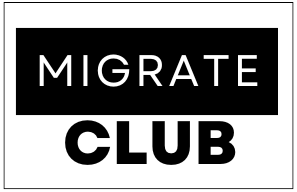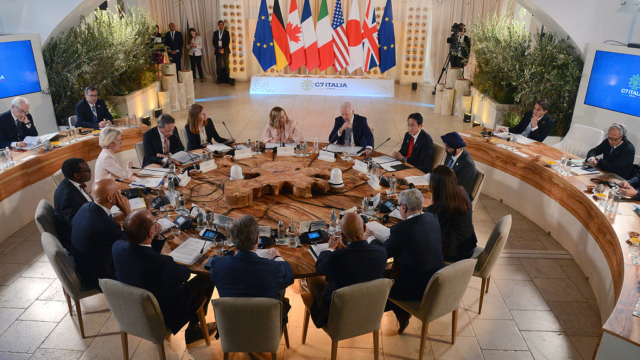At the G7 summit in Italy’s southern Puglia region, leaders of the world’s top industrialized nations turned their attention to migration on the second day, seeking ways to combat human trafficking and boost investment in the countries from which migrants embark on perilous journeys. The summit is also addressing other critical topics, such as financial aid for Ukraine, the war in Gaza, artificial intelligence, and climate change.
However, disagreements have surfaced over the wording of the summit’s final declaration, particularly concerning the inclusion of a reference to abortion.
Migration is a significant concern for Italy, the summit host, as the country lies on a major route into the European Union for people fleeing conflict and poverty in Africa, the Middle East, and Asia. Italian Premier Giorgia Meloni, known for her strict stance on migration, aims to increase investment and funding for African nations to alleviate migratory pressure on Europe.
Italy “wanted to dedicate ample space to another continent that is fundamental to the future of all of us, which is Africa, with its difficulties, its opportunities,” Meloni said at the summit’s opening on Thursday. She highlighted the issue of migration and the role of trafficking organizations exploiting desperate individuals.
Meloni’s controversial five-year deal with Albania involves the Balkan country hosting thousands of asylum-seekers while Italy processes their claims. She also leads the “Mattei Plan” for Africa, a strategy to enhance economic opportunities in Africa to discourage migration to Europe.
As of 2024, over 22,000 people have arrived in Italy by sea, according to UNHCR figures. In 2023, more than 157,000 migrants reached Italy, and nearly 2,000 died or went missing during the dangerous Mediterranean crossing.
The United States is also grappling with a surge in migrants at its southern border. President Joe Biden has introduced new policies to curb migration after a legislative attempt failed. However, immigrant rights advocates have filed lawsuits challenging these policies, raising uncertainty about their legal viability.
European Council President Charles Michel emphasized the collective nature of the migration challenge, advocating for a coalition to combat smugglers exploiting vulnerable individuals for profit and destabilizing regions worldwide.
In addition to the G7 members—Canada, France, Germany, Italy, Japan, the United Kingdom, and the US—several African leaders, including Algerian President Abdelmadjid Tebboune, Kenyan President William Ruto, and Tunisian President Kais Saied, were invited to support Meloni’s migration and development initiatives. Pope Francis will also address the summit on artificial intelligence, marking the first time a pontiff has spoken at a G7 summit. Other notable attendees include Ukrainian President Volodymyr Zelenskyy, Brazilian President Luiz Inacio Lula da Silva, Indian Prime Minister Narendra Modi, and Turkish President Recep Tayyip Erdogan.
The summit began with strong support for Ukraine, including an agreement on a US proposal to back a $50 billion loan to Ukraine using frozen Russian assets as collateral. Russian President Vladimir Putin condemned the freezing of Russian assets as “theft” and vowed retaliation.
Biden signed a bilateral security agreement with Zelenskyy, signaling US commitment to supporting Kyiv. Zelenskyy hailed it as a “truly historic day” for security and human life protection.
However, tensions arose among G7 leaders, with French President Emmanuel Macron expressing regret over the omission of abortion from the final communique. Last year’s statement from Hiroshima included a commitment to providing access to safe and legal abortion and defending gender equality and LGBTQ+ rights. This year, the communique only mentions promoting sexual and reproductive health rights without explicitly referencing abortion.
Macron lamented the lack of consensus, emphasizing France’s constitutional commitment to women’s right to abortion and equality between men and women. Meloni, who campaigned on a “God, Faith, and Fatherland” platform, denied rolling back abortion rights, legal in Italy since 1978. However, the opposition warns that her policies are eroding those rights, such as allowing pro-life groups to access women considering abortions.
Italy’s ANSA news agency reported that this year’s text reiterates the G7’s commitment to universal, adequate, and sustainable health services for women, including reproductive rights.

























